Abstract
In developing countries the highest incidence of diarrhoea occurs among infants who are given fluids or foods to supplement or replace breast-feeding, and numerous studies have been conducted to examine the relationship between feeding practices during the weaning period and the risk of diarrhoea and malnutrition. This Memorandum summarizes current knowledge about the potential impact of improved infant feeding practices on diarrhoeal morbidity and mortality and describes experiences gained with interventions to promote improved practices. Further research activities to examine the role of improved infant feeding practices in the control of diarrhoeal diseases and to identify more effective approaches to the promotion of such practices in the context of a public health programme are also proposed. Finally, methodological issues concerning the design, implementation, and analysis of intervention studies are reviewed.
Full text
PDF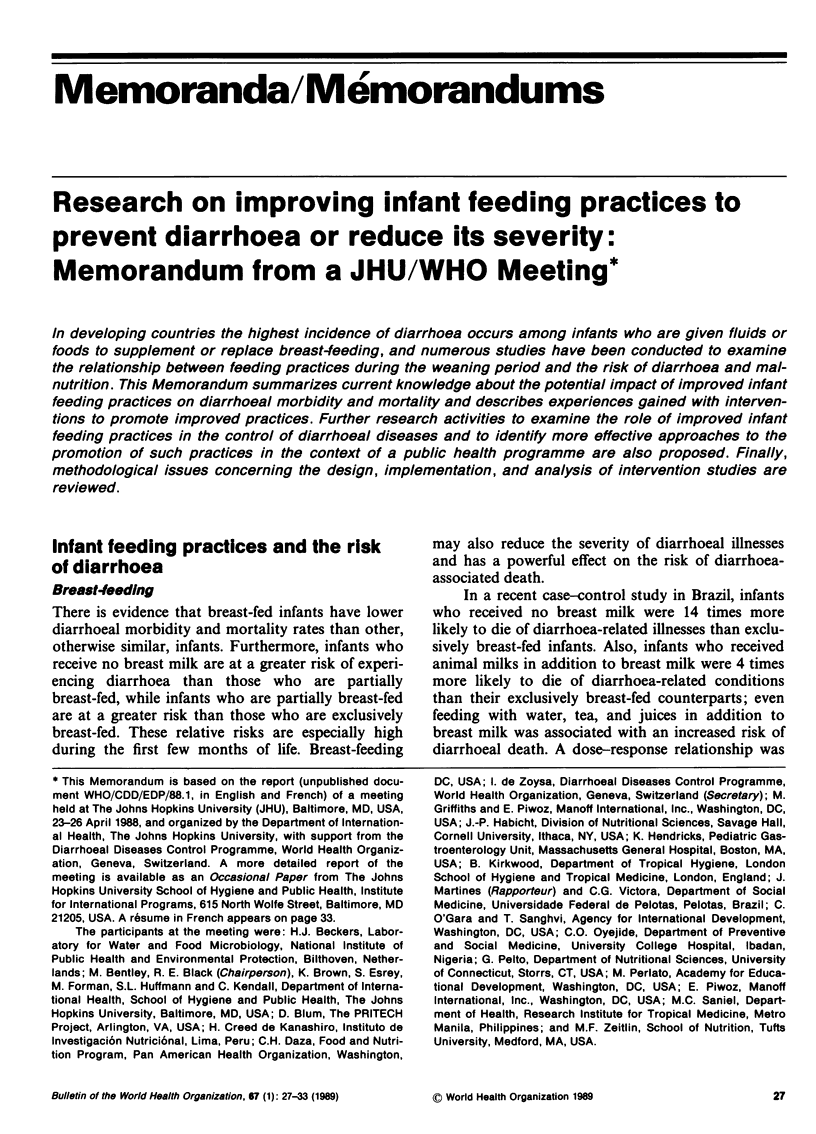
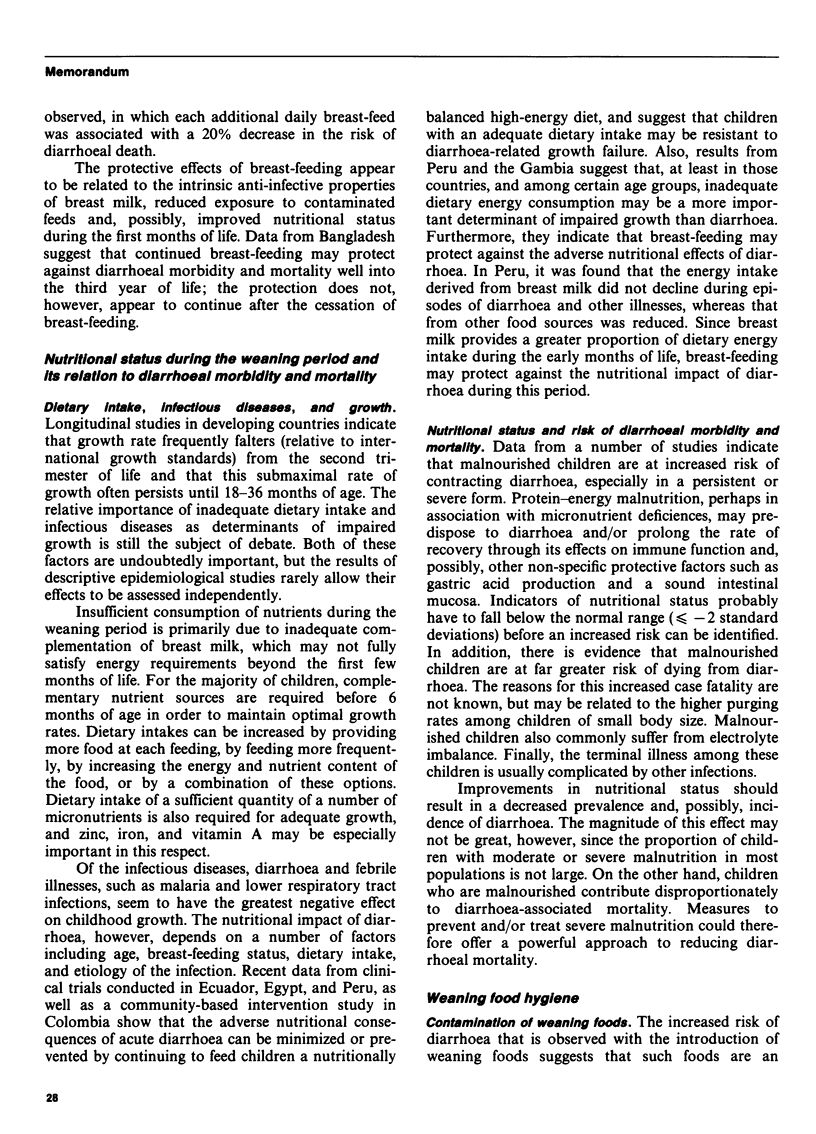
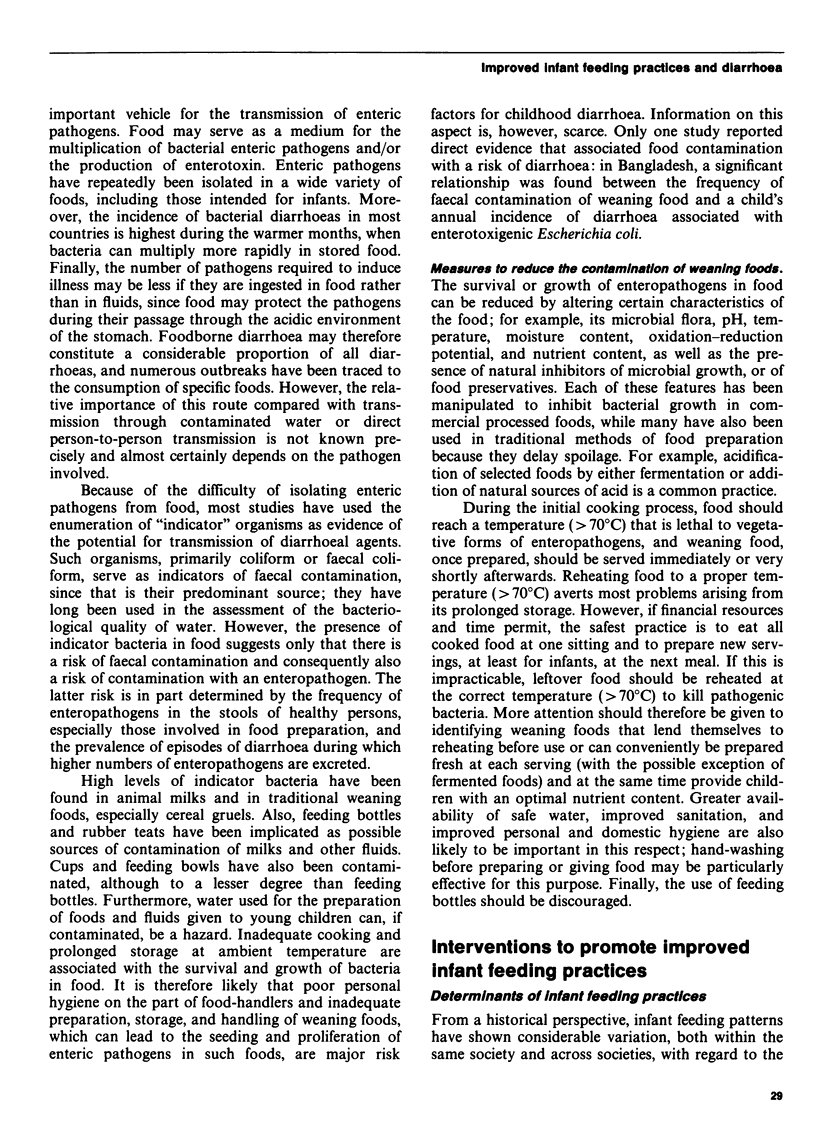
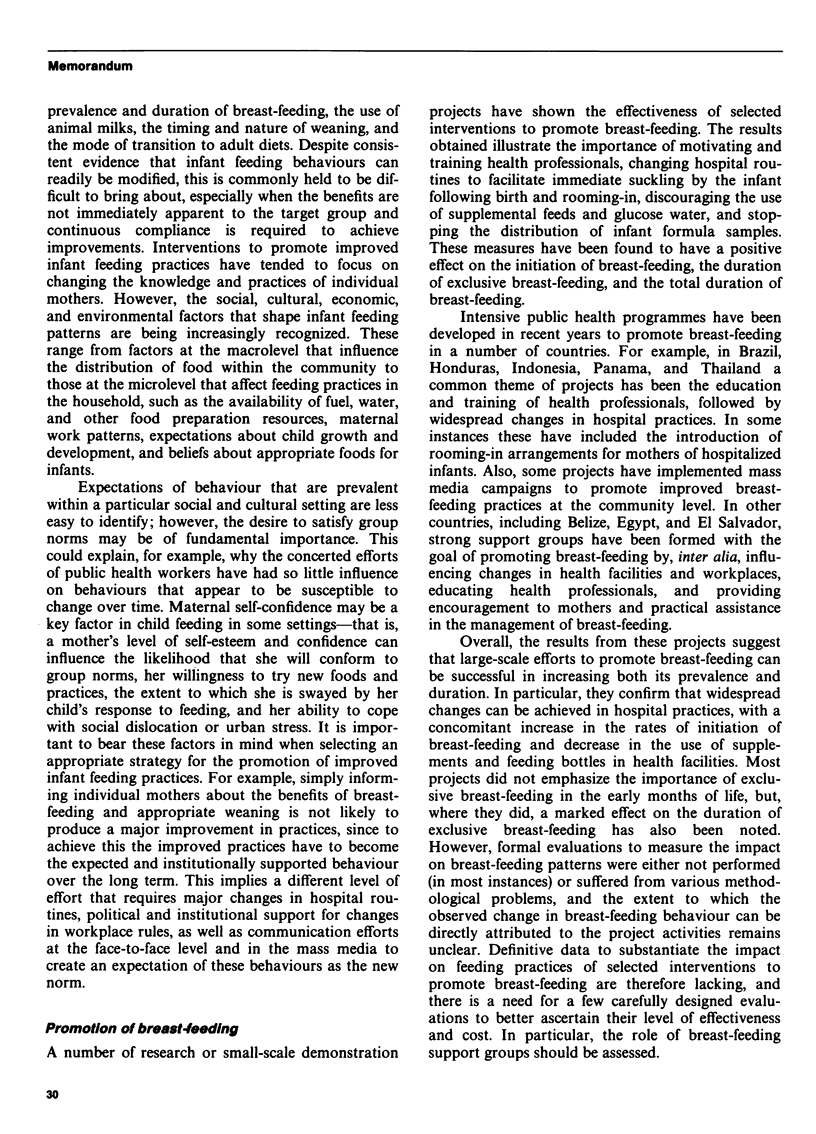
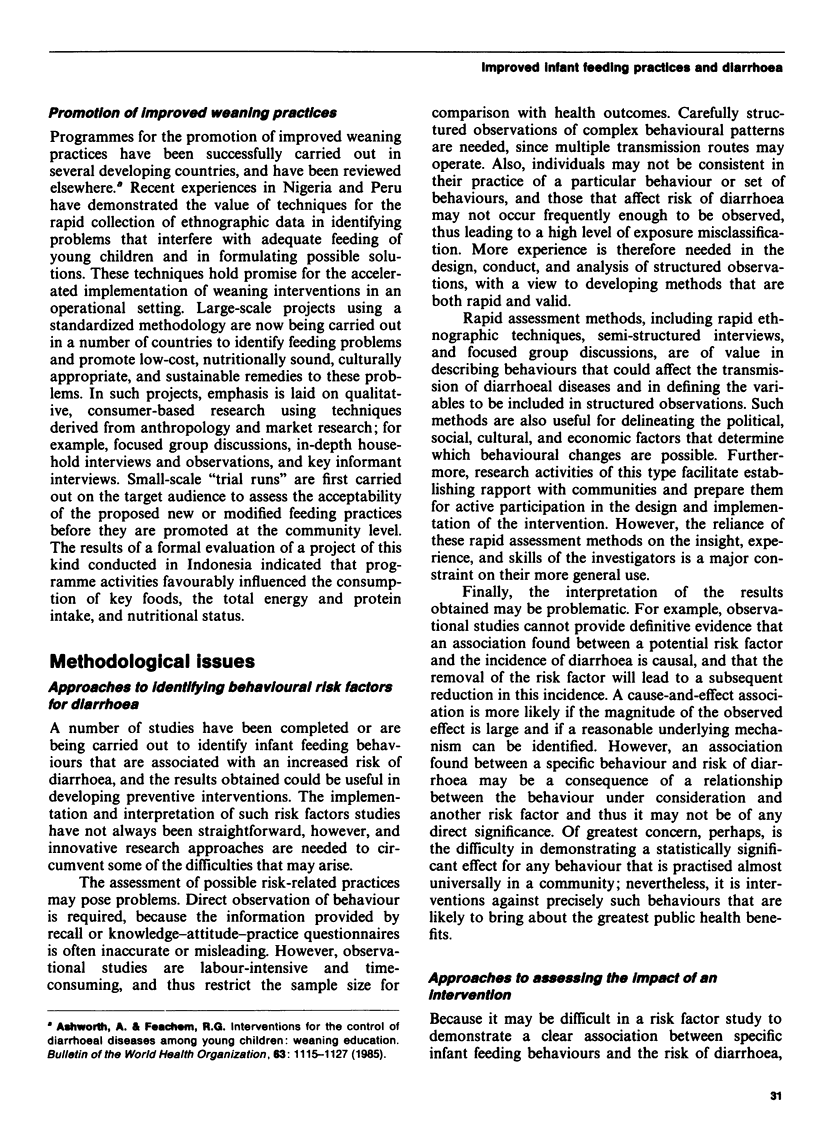
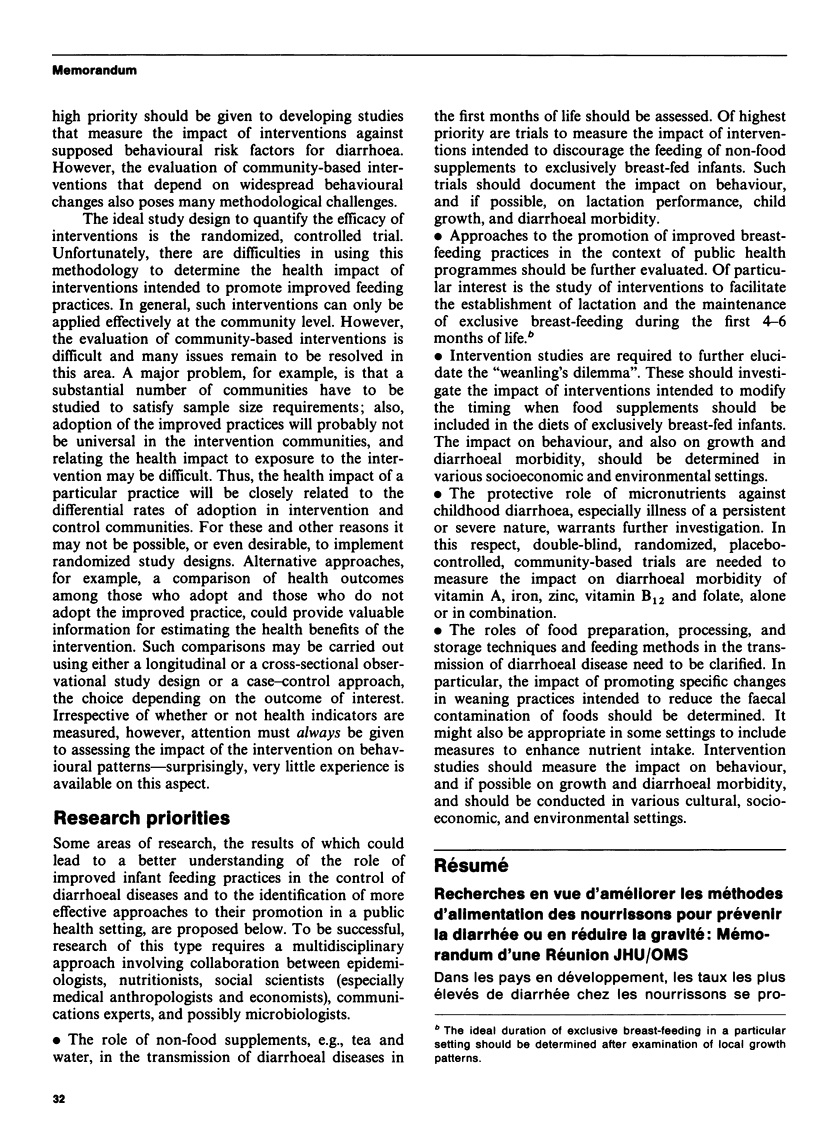
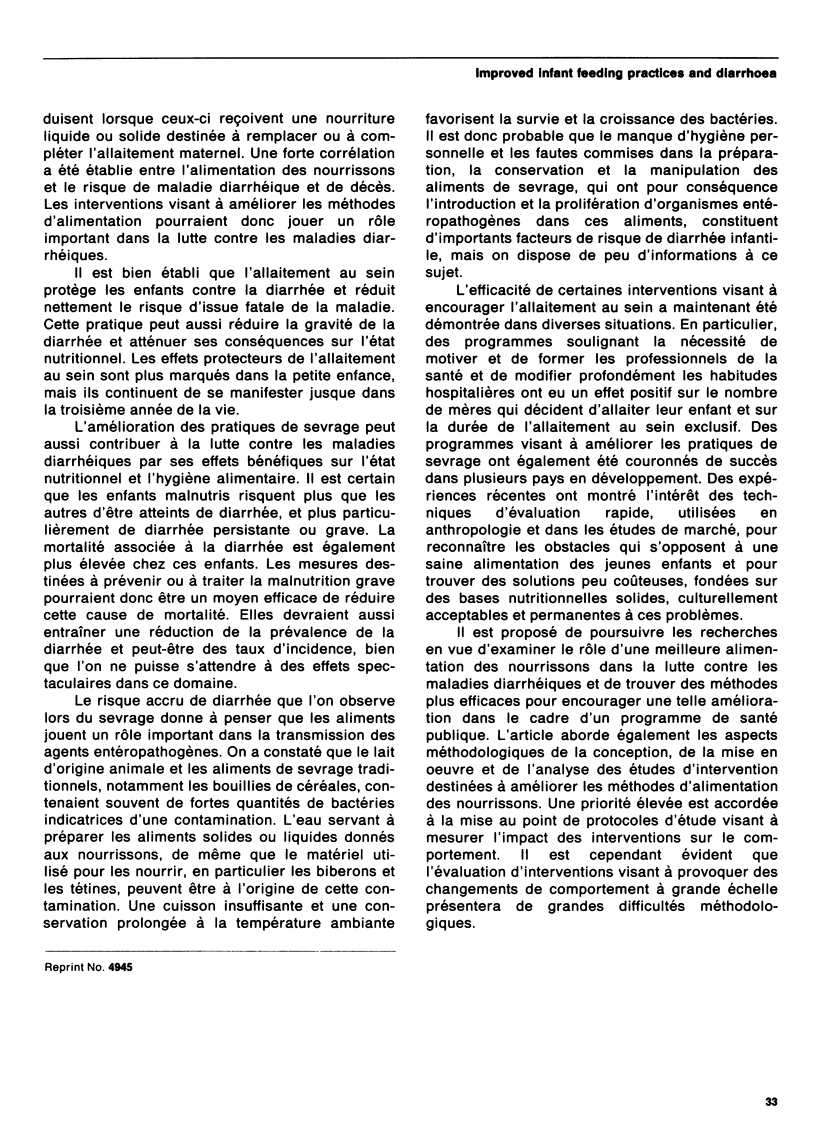
Selected References
These references are in PubMed. This may not be the complete list of references from this article.
- Ashworth A., Feachem R. G. Interventions for the control of diarrhoeal diseases among young children: weaning education. Bull World Health Organ. 1985;63(6):1115–1127. [PMC free article] [PubMed] [Google Scholar]


